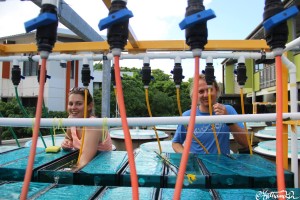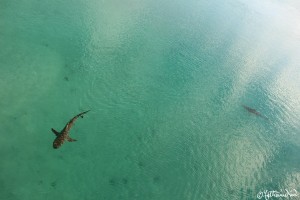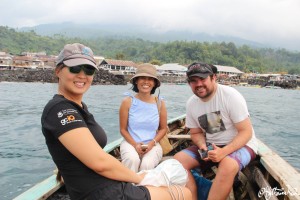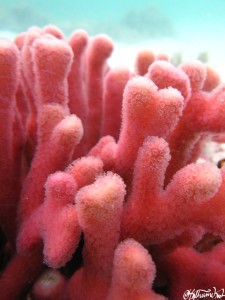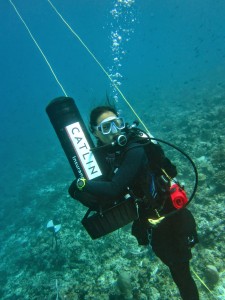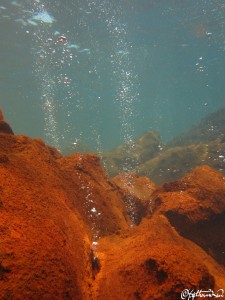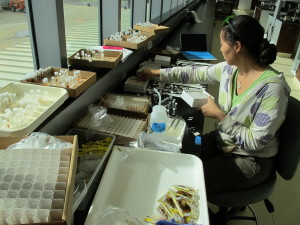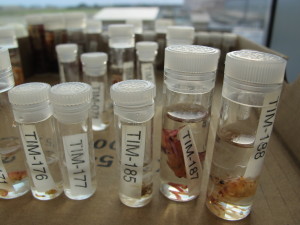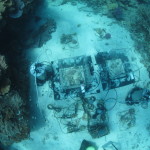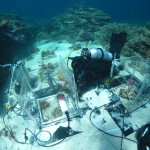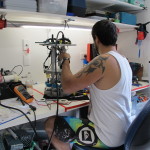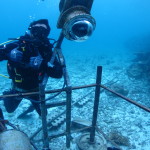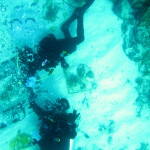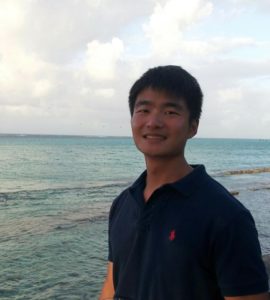Category Archives: People
Dr Kristen Brown
Research Interests
- Coral reef ecology
- Species interactions
- Coral reef community metabolism
- Climate change on coral reef ecosystems
About
Contact
Mr Joshua Biggs
Joshua is a graduate of the University of Tasmania where he studied Marine Science, focusing on interactions between aquaculture facilities and local environments. Subsequent to his time in Tasmania, he spent several years in the commercial aquaculture industry as a Nursery Technician.
Joshua is employed as a Research Assistant with the CRE Lab’s Mesocosm project, which is examining potential impacts of climate change on coral reef ecosystems. Joshua rotates between the Heron Island Research Station, where he maintains the project’s mini-artificial reef systems, and the Brisbane campus, where analysis of collected samples takes place.
Dr Catherine Kim
Contact About Publications Photos Video Blog
Contact
Catherine Kim CV
XL Catlin Oceans Scholar
ARC Centre of Excellence for Coral Reef Studies
The University of Queensland Australia
Level 7, Gehrmann Labs (60)
St. Lucia, QLD 4072
+617 3365 2118
c dot kim at uq dot edu dot au
www.catherinejkim.com
![]() fishiintheC
fishiintheC
About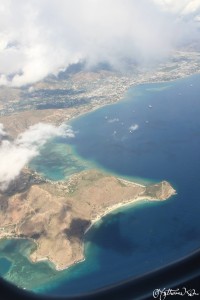
Catherine hails from Virginia and completed her BSc in Science of Earth Systems concentrating in Oceanography at Cornell University. Following graduation, she worked for Professor Drew Harvell coordinating her National Science Foundation Research Coordination Network Grant in the Ecology of Infectious Marine Disease. She participated in seagrass wasting disease projects in the San Juan Islands, Washington and coral health and water quality surveys in Puakō, Hawai’i. In 2013, she was also a program assistant for Cornell’s Earth and Environmental Systems Sustainability Semester based in Waimea, Hawai’i Island.
Catherine recently completed her PhD as an XL Catlin Oceans Scholar PhD student in the Coral Reef Ecosystems Lab and was fortunate to have been a part of the XL Catlin Seaview Survey global coral reef survey Indo-Pacific campaign in 2014. Following the survey in Timor-Leste, Catherine focused her thesis work in the newly independent nation combining XL Catlin and NOAA datasets. As a former NOAA Pacific Islands Fisheries Science Center intern, she utilized XL Catlin Seaview Survey and NOAA datasets in an effort to better understand the coral reefs of Timor-Leste. She investigated questions on coral reef benthic composition, marine biodiversity of crabs and fishes, and coral health. Hopefully, her work will contribute to in-country marine resource management at this critical point of development in Timor-Leste. In 2019, she was the Scientific Exploration Society’s Elodie Sandford Explorer Awardee investigating tara bandu customary law as a means of marine conservation in Timor-Leste. One of the main findings from her PhD research was that Timor-Leste is a climate refugium in terms of ocean warming and comparatively less impacted by the recent mass bleaching events. Her current research focuses on extending her coral ecology background in Timor-Leste to address localized impacts such as sedimentation on coral reefs and investigate land-sea conservation planning to maximize benefits to the environment and people.
Publications
Kim CJS, Roelfsema C, Dove S, Hoegh-Guldberg O (in press) The conditions of coral reefs in Timor-Leste before and after the 2016-2017 marine heatwave. Oceans 1001163. bioRxiv
Nolan MKB, Kim CJS, Hoegh-Guldberg O, Beger M (2020) The benefits of heterogeneity in spatial planning within coral reef environments. Biological Conservation D-20-00446. link
Rodriguez-Ramirez A, González-Rivero M, Beijbom O, Bailhache C, Bongaerts P, Brown K, Bryant DEP, Dalton P, Dove S, Ganase A, Kennedy EV, Kim CJS… (2020) A contemporary baseline record of the world’s coral reefs. Scientific Data. doi: 10.1038/s41597-020-00698-6. pdf
Kennedy EV, Vercelloni J, Neal B, Ambariyanto, Bryant D, Ganase A, Gartell P, Brown K, Kim CJS et al. (2020) Coral Reef Community Changes in Karimunjawa National Park, Indonesia: Assessing the Efficacy of Management in the face of Local and Global Stressors. Journal of Marine Science and Engineering. 8(760): 27. doi:10.3390/jmse8100760. pdf
González-Rivero M, Beijbom O, Rodriguez-Ramirez A, Bryant DEP, Ganase A, Gonzalez-Marrero, Herrera- Reveles A, Kennedy EV, Kim CJS… (2020) Monitoring of Coral Reefs Using Artificial Intelligence: A Feasible and Cost-Effective Approach. Remote Sensing. 12(3): 489. doi:10.3390/rs12030489. pdf
Yoshioka RM, Kim CJS, Tracy AM, Most R, Harvell CD (2016) Linking sewage pollution and water quality to spatial patterns of Porites lobata growth anomalies in Puakō, Hawai‘i.Marine Pollution Bulletin. 104: 313-321. doi:10.1016/j.marpolbul.2016.01.002. pdf
Groner ML, Burge CA, Kim CJS, Rees E, Van Alstyne KL, Yang S, Wyllie-Echeverria S, Harvell CD (2016) Plant characteristics associated with widespread variation in eelgrass wasting disease. Diseases of Aquatic Organisms 118(2): 159-168. doi:10.3354/dao02962.
Groner ML, Burge CA, Couch CS, Kim CJS, Siegmund GF, Singhal S, Smoot SC, Harvell CD, Wyllie-Echeverria S, Jarrell A, Gaydos JK (2014) Host demography influences the prevalence and severity of seagrass wasting disease. Diseases of Aquatic Organisms 108: 165-175. doi:10.3354/dao02709
Burge CA, Kim CJS, Lyles JM, Harvell CD (2013) Special Issue Oceans and Humans Health: The Ecology of Marine Opportunists. Microbial Ecology 65(4): 869-79. doi:10.1007/s00248-013-0190-7
Other Publications
Kim CJS (in press) Coral Reef Management and Tara Bandu on Ataúro Island: an ecologist’s perspective. Timor-Leste: the Island and the World Conference Proceedings.
Kim CJS (2020) Tara Bandu in Timor-Leste. Report for the Scientific Exploration Society, Motcombe, UK. pdf
Kim CJS (2016) Coral Health and Disease in Timor-Leste. Report for the Global Change Institute, The University of Queensland, St. Lucia, QLD, Australia.
Kim CJS, Yoshioka RM, Harvell CD. (2013). Linking sewage pollution and water quality to spatial patterns of Porites growth anomalies in Puakō, HI. Report for the Puakō Community Assoc., Puakō, HI.
Photos
- Veronica and Rene cleaning tanks and Heron Island
- Blacktip sharks at Heron Island
- Heading into Siau in Indonesia
- Stylophora coral
- I <3 my scooter photo K. Brown
- Mahangetang underwater seep
- Subsampling crabs at NOAA
- Brachyuran crab samples
- Pearl Harbor, Hawai’i
Video
Tim Burgess
Mark Snowball
Dr Matheus A. Mello-Athayde
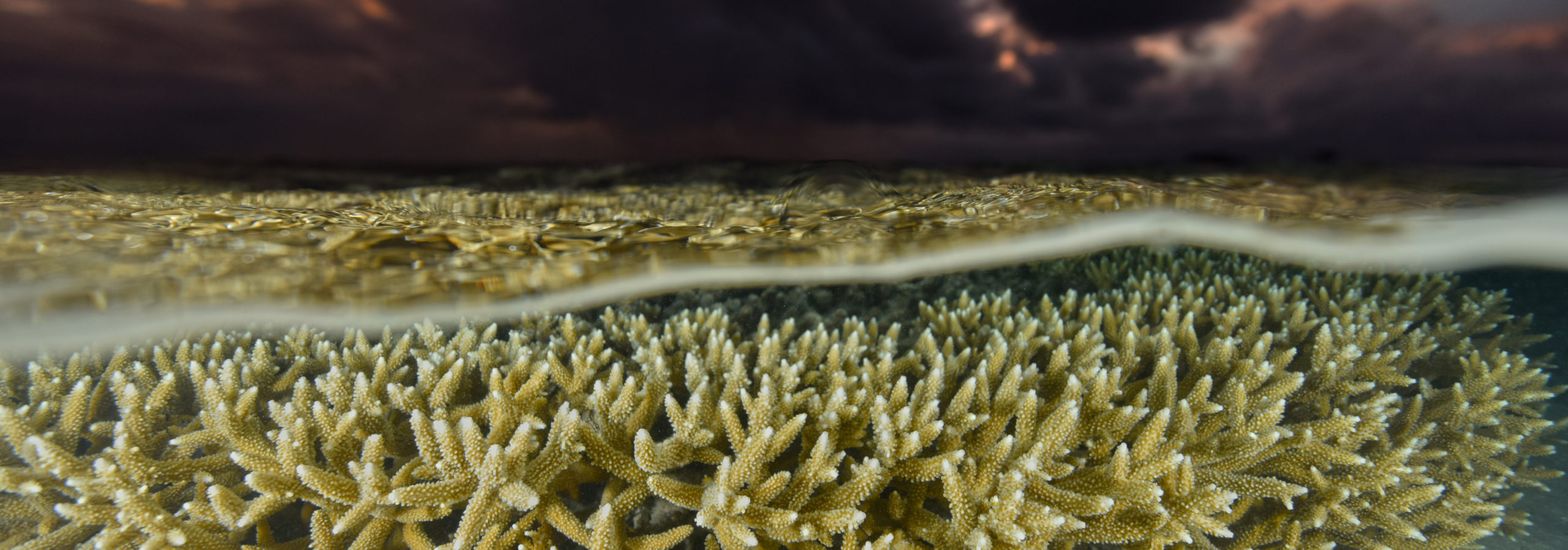
Matheus Mello-athayde
About
Dr. Matheus is a postdoctoral research fellow at The University of Queensland (UQ, Australia). Matheus is a marine biologist that has recently completed his Ph.D. at the Coral Reef Ecosystems Laboratory (CRE lab) and ARC Centre of Excellence Coral Reef Studies at UQ, under the supervision of A/Professor Dr. Sophie Dove, Dr. Selina Ward, and Professor Dr. Ove Hoegh-Guldberg. Matheus’s Ph.D. and current research focuses on the present and future coral biology and physiology under different reef environments and the impacts of ocean warming and acidification. Matheus graduated with a double degree in science: Bachelor of Science (teaching degree, 2008) and Bachelor of Biological Science with Honours (Marine Biology Major, 2009) from Santa Cecilia University, Brazil.
Matheus is a passionate and dedicated marine biologist, wildlife and underwater photographer. He grew up snorkelling the coast of Brazil, learning to appreciate and protect the ocean’s biodiversity. Since he was a teenager, he has been involved with marine science and started to work as an Aquarist and Marine Education Officer on the largest public aquarium in South America at the time (Acqua Mundo, Brazil).
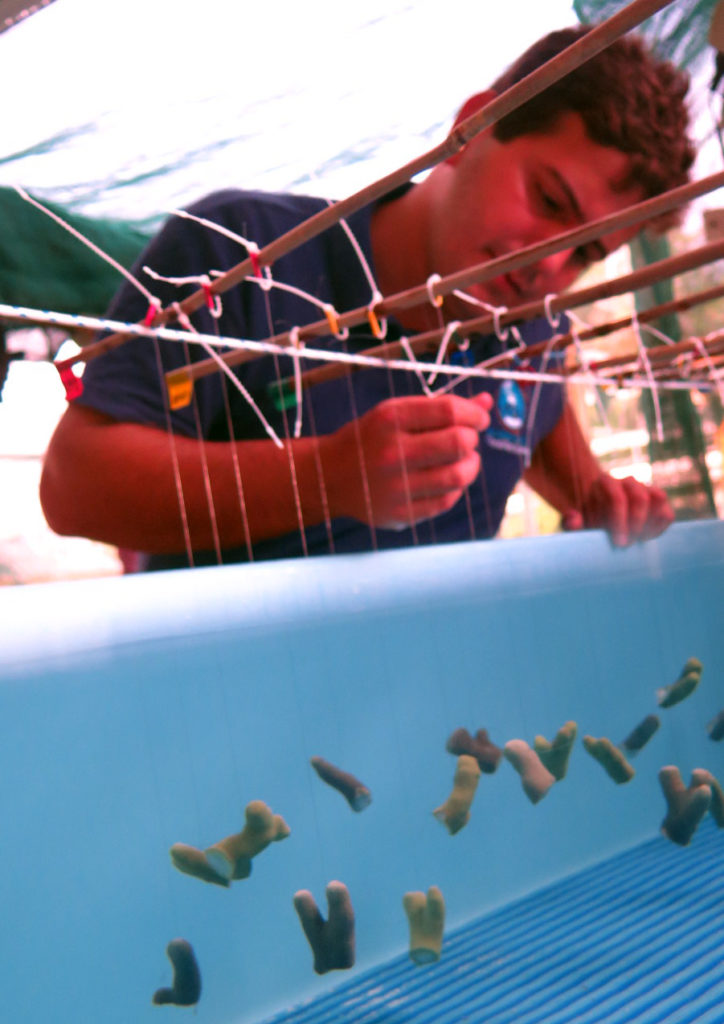
While undertaking his bachelor’s degree, he worked on different scientific projects, presenting the research outcomes at various conferences and symposiums. His work experience included biometric data acquisition and scientific identification on one of the most extensive collections of preserved sharks and rays in Brazil, at the centre of studies of Elasmobranchii, NUPEC. He contributed as a biologist on a centre of rescue and rehabilitation of marine animals at the Gremar Institute, Brazil. While at Gremar he worked on an educational outreach program funded by the Guarujá city council as a teacher for public high schools’ students. He also worked for the University of Sao Paulo as a marine educator and snorkelling guide on a marine ecology outreach project. Matheus had a passion for the zoology of invertebrates, his honours degree project focused on the ecology of rocky shore environments, which led him to start a work internship with corals reefs at the University of Sao Paulo.
In January 2011, Matheus joined the CRE laboratory where he had the opportunity to learn, design and perform field and laboratory experiments, field samples collection, data collection, statistical analyses, and statistical modelling. Matheus’s research collaborations ranged from DNA extractions to performing long term in-situ and laboratory experiments on different coral species and bioerosive sponges, with a goal to advance our knowledge on how the impact of climate change, such as increases in ocean temperature and acidification, will affect the coral reefs.
Matheus was awarded a full doctoral fellowship on a research project entitled “Porites cylindrica (Dana, 1846), a resilient coral found on the Great Barrier Reef: present and future coral physiology”. The overall aim of Matheus’s PhD thesis is to better understand how corals with different life-history respond to changes in the present and future abiotic environments. His PhD project utilized the state-of-the-art laboratory automated control system for studying the effects of ocean acidification and warming. His project was also one of the firsts to incorporate the newest automated underwater incubations system in order to measure in situ calcification and metabolic rates.
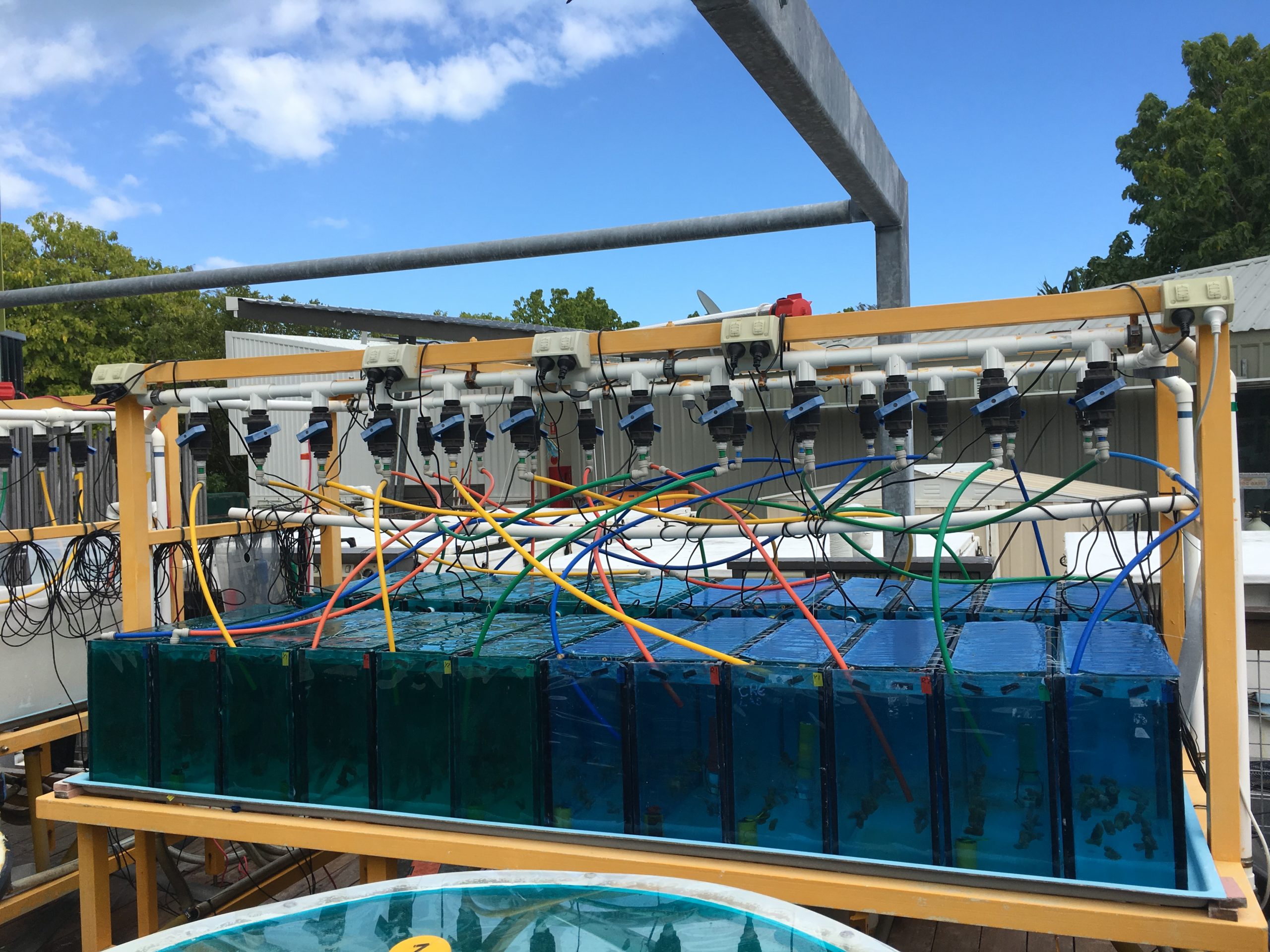
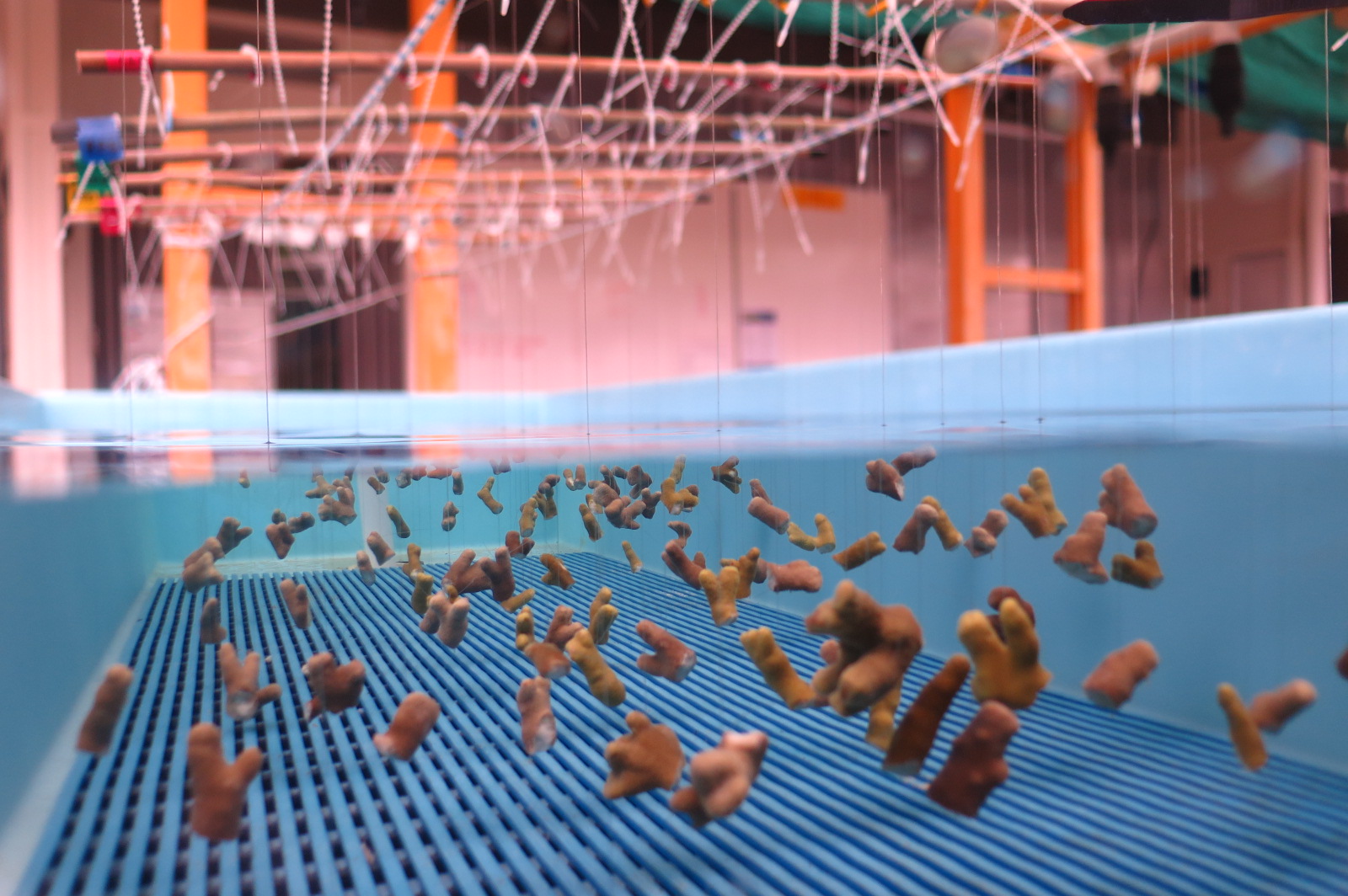
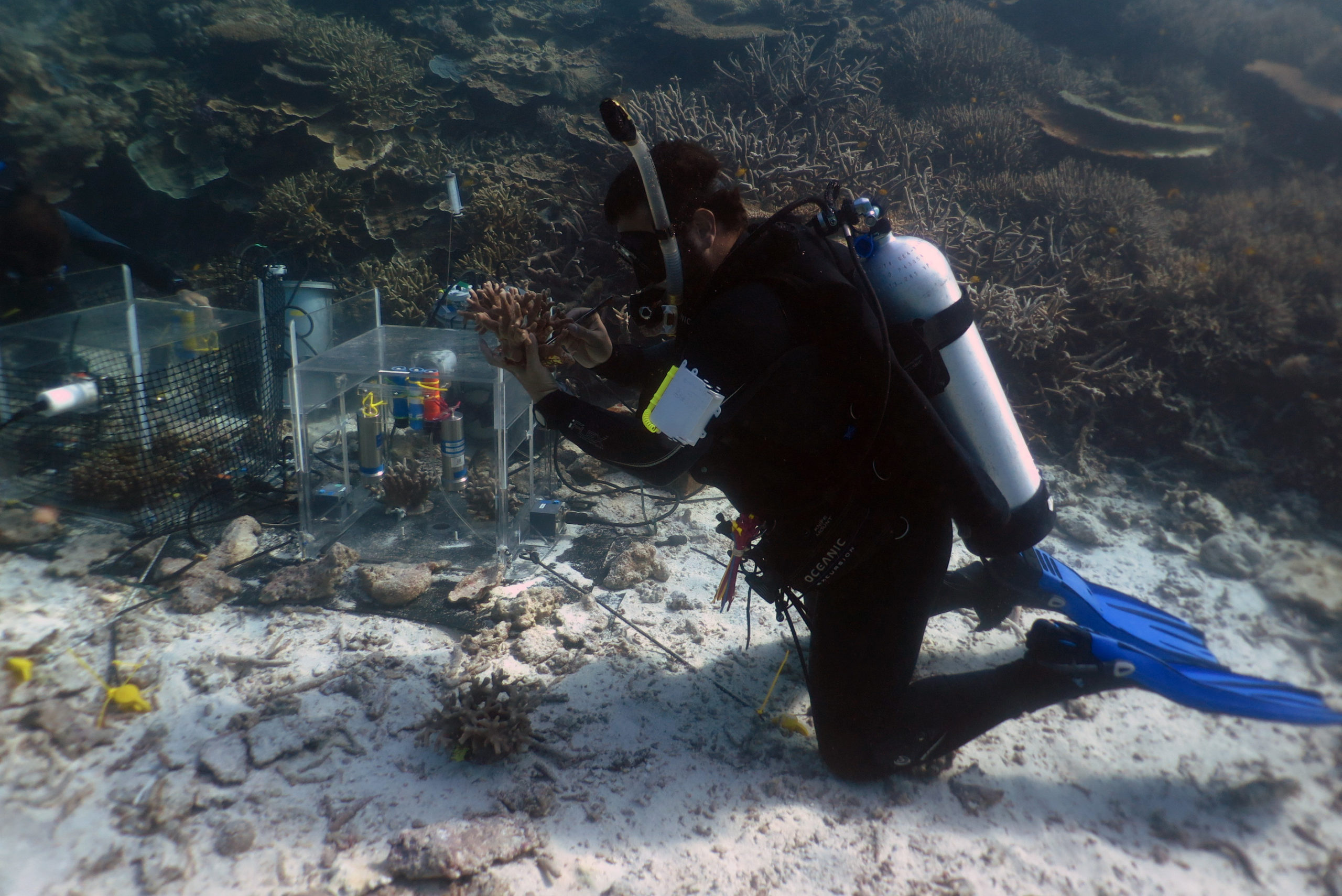


The hope for the coral reefs is going beyond finding “super corals” that would be able to resist bleaching and survive stressful thermal events but find corals that also can maintain a higher percentage of coral cover, by growing rapidly upwards to counter sea level rises, maintain high recruitment levels and increase their skeletal density to prevent breakages due to the wave energy that coral reefs might be facing in the future.







Matheus Mello-athayde
Current projects and collaborations:
- Porites cylindrica (Dana, 1846), a resilient coral found on the Great Barrier Reef: present and future coral physiology. in collaboration with Associate Professor Sophie Dove (UQ, Australia), Professor Ove Hoegh-Guldberg, Dr Selina Ward.
Sub–projects:
- Conservative growth by hard coral exposed to variable environments.
- Long term in-situ growth dynamics of reef-flat and reef-slope Porites cylindrica as a function of origin and reciprocal transplantation.
- Future scenario experiment, responses of Porites cylindrica coral to future warming and acidification scenarios under different lights.
- Responses of Porites cylindrica coral to future summer warming and acidification scenarios under different lights.
- Porites cylindrica genetic variation between Heron Island reef habitats. in collaboration with Dr Pim Bongaerts (California Academy of Sciences, USA)
- Importance of heterotrophic feeding for Porites cylindrica as an alternative survival strategy.
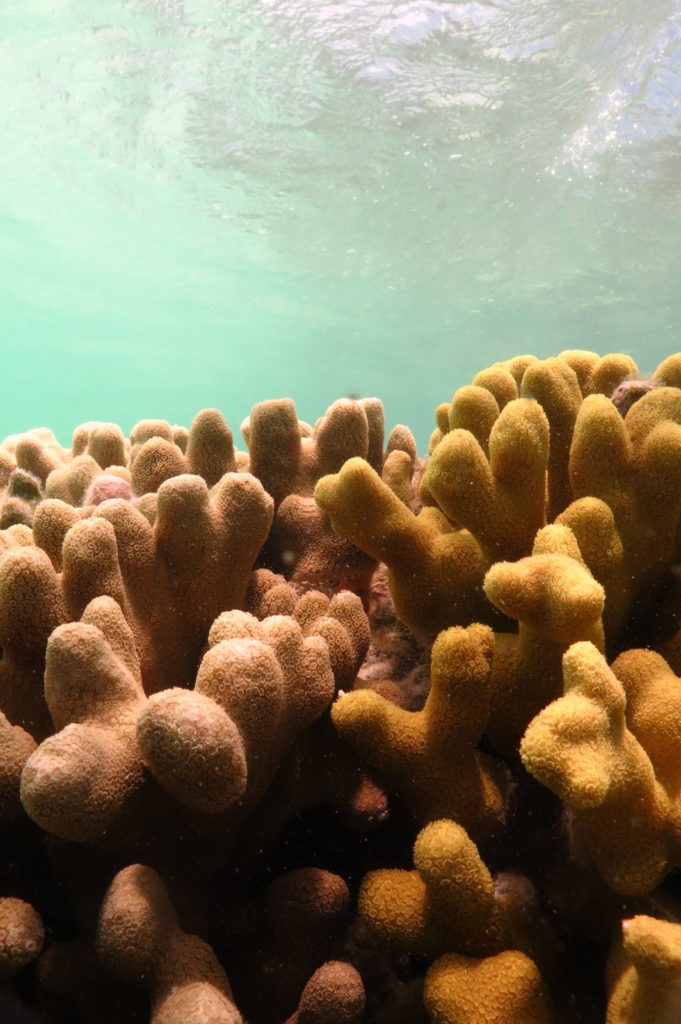
- “History of thermal stress impairs calcification and expansion in branching coral”, in collaboration with Professor Amatzia Genin (The Hebrew University, The Interuniversity Institute for Marine Science in Eilat, Israel) and Dr Kristen Brown (University of Pennsylvania, USA), Dr Veronica Radice (Old Dominion University, USA) and Associate Professor Sophie Dove (UQ, Australia).
- “Effect of diel pH variability on acidification resilience, calcification and tissue energetics in corals with contrasting environmental pH histories”, in collaboration with Dr Kristen Brown (University of Pennsylvania, USA), Associate Professor Sophie Dove (UQ, Australia) and A. Prof. Katie Barott (University of Pennsylvania, USA).
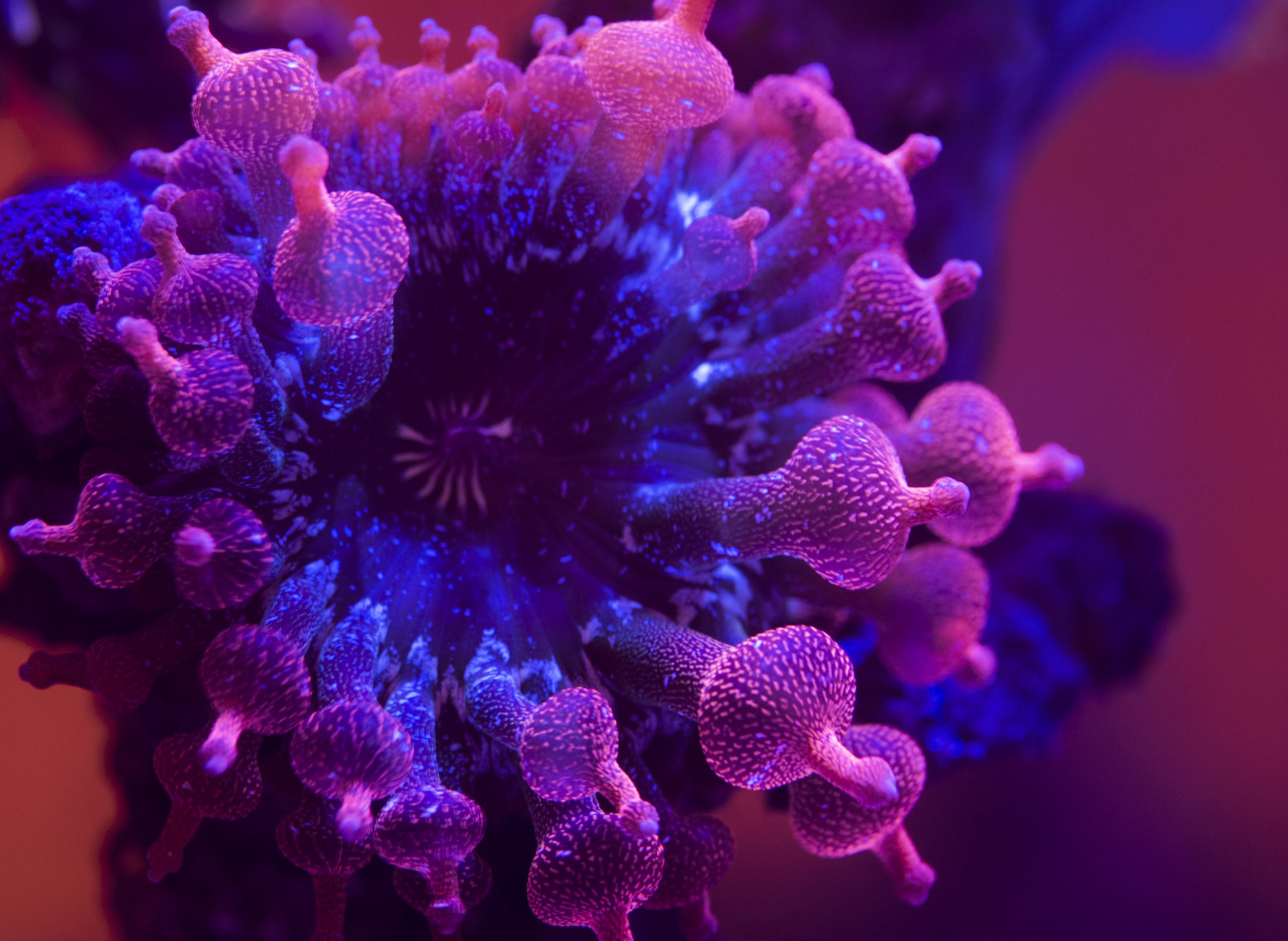
Matheus Mello-athayde
Main Collaborators
Associate Professor Sophie Dove (The University of Queensland, Australia)
Professor Ove Hoegh-Guldberg (The University of Queensland, Australia)
Dr Selina Ward (The University of Queensland, Australia)
Dr Kristen Brown (University of Pennsylvania, USA)
Professor Amatzia Genin (The Hebrew University, The Interuniversity Institute for Marine Science in Eilat, Israel)
Dr Veronica Radice (Old Dominion University, USA)
Dr Pim Bongaerts (California Academy of Sciences, USA)
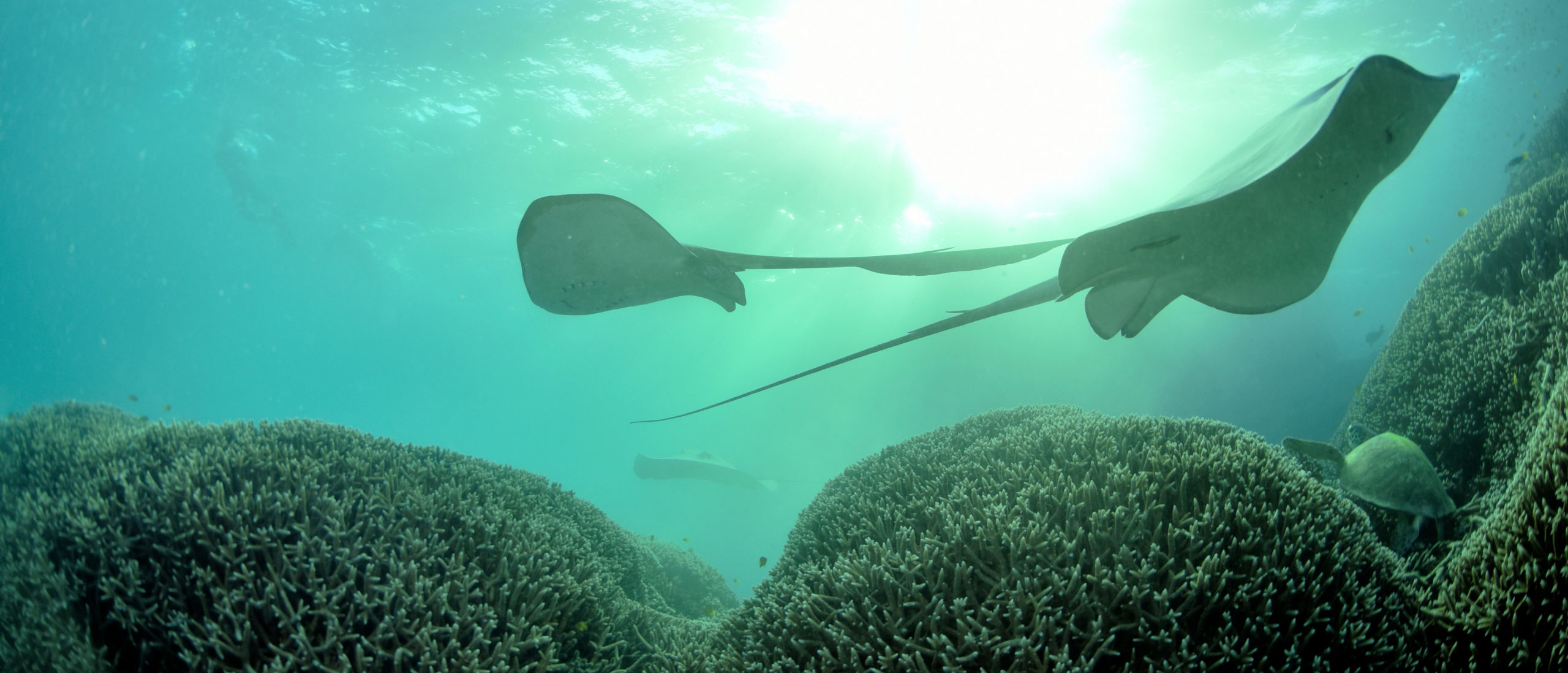
Matheus Mello-athayde
Publications
Brown KT, Mello-Athayde MA, Sampayo EM, Chai A, Dove S, Barott KL (2022) Environmental memory gained from exposure to extreme pCO2 variability promotes coral cellular acid–base homeostasis, Proceedings of the Royal Society B: Biological Sciences. https://doi.org/10.1098/rspb.2022.0941
Clark V, Mello-Athayde MA, Dove S (2022) Colonies of Acropora formosa with greater survival potential have reduced calcification rates. PLOS ONE https://doi.org/10.1371/journal.pone.0269526
Mello-Athayde MA (2021) Present and future coral physiology of the resilient coral Porites cylindrica (Dana, 1846). PhD Thesis. https://doi.org/10.14264/8f8e563
Rosic N, Rémond C, Mello-Athayde MA (2020) Differential impact of heat stress on reef-building corals under different light conditions. Mar Environ Res 158. https://doi.org/10.1016/j.marenvres.2020.104947
Fang JKH, Schönberg CHL, Mello-Athayde MA, Achlatis M, Hoegh-Guldberg O, Dove S (2018) Bleaching and mortality of a photosymbiotic bioeroding sponge under future carbon dioxide emission scenarios. Oecologia 187:25–35 https://doi.org/10.1007/s00442-018-4105-7
Fang JKH, Schönberg CHL, Mello-Athayde MA, Hoegh-Guldberg O, Dove S (2014) Effects of ocean warming and acidification on the energy budget of an excavating sponge. Glob Chang Biol 20:1043–1054 https://doi.org/10.1111/gcb.12369
Fang JKH, Mello-Athayde MA, Schönberg CHL, Kline DI, Hoegh-Guldberg O, Dove S (2013) Sponge biomass and bioerosion rates increase under ocean warming and acidification. Glob Chang Biol 19:3581–3591 https://doi.org/10.1111/gcb.12334
Athayde MAM, Borges RP (2009). Characterization of the macrobenthic community of the rocky shore of the Urubuqueçaba Island, Santos – SP (Brazil). Honours thesis – Revista Ceciliana.
Mello-Athayde MA, Hoegh-Guldberg O, Ward S, Dove S (2020) Conservative growth by hard coral exposed to variable environments. PhD thesis, in revision.
Mello-Athayde MA, Hoegh-Guldberg O, Ward S, Dove S (2020) Conservative growth by hard coral exposed to variable environments. In revision.
Mello-Athayde MA, Hoegh-Guldberg O, Ward S, Dove S (2020) Long term in-situ growth dynamics of reef-flat and reef-slope Porites cylindrica as a function of origin and reciprocal transplantation. In revision.
Mello-Athayde MA, Hoegh-Guldberg O, Ward S, Dove S (2020) Future scenario experiment, responses of Porites cylindrica coral to future warming and acidification scenarios under different lights. In revision.
Mello-Athayde MA, Hoegh-Guldberg O, Ward S, Dove S (2021) Responses of Porites cylindrica coral to future summer warming and acidification scenarios under different lights. In prep.
Mello-Athayde MA, Bongaerts P, Hoegh-Guldberg O, Ward S, Dove S (2021) Porites cylindrica genetic variation between Heron Island reef habitats. In prep.
Mello-Athayde MA, Hoegh-Guldberg O, Ward S, Dove S (2021) Importance of heterotrophic feeding for Porites cylindrica as an alternative survival strategy. In prep.
Other Publications, presentations and invited talks
Mello-Athayde MA, Ward S, Hoegh-Guldberg O, Dove S (2020) Conservative growth by hard coral exposed to variable environments: impact of reciprocal translocation between reef-flat and reef-slope. 14th International Coral Reef Symposium, Germany.
Mello-Athayde MA, Ward S, Hoegh-Guldberg O, Dove S (2018) Porites cylindrica (Dana, 1846), a resilient coral found on the Great Barrier Reef: present and future coral physiology. 91th Australian Coral Reef Society (ACRS) Conference, Exmouth, Western Australia.
Mello-Athayde MA, Ward S, Hoegh-Guldberg O, Dove S (2017) Calcification and production in two populations of Porites cylindrical (Dana, 1846): impact of reciprocal translocation. 90th Australian Coral Reef Society (ACRS) Conference, Townsville, Australia.
Mello-Athayde MA, Ward S, Hoegh-Guldberg O, Dove S (2016) Importance of heterotrophic feeding for Porites cylindrica as an alternative survival strategy. 13th International Coral Reef Symposium, Honolulu, USA.
Bongaerts P, Sampayo E, Mello-Athayde MA, Tonk L, Dove S (2012) SymbioGBR: a web-based database of Symbiodinium diversity and host associations on the Great Barrier Reef. 12th International Coral Reef Symposium, Cairns, Australia.
Maranho A, Mello-Athayde MA (2008) Monitoring, identification and quantification of sea turtle stranding in Baixada Santista, State of São Paulo in the period 2007-2008. 11° Marine Biology Symposium, Santos, Brazil.
Mello-Athayde MA, Giordano F (2006) Sea urchin as an environmental indicator- a tool to assess rocky shore ecosystems, IV Semana da Biologia Marinha e Gerenciamento Costeiro da UNESP, Sao Vicente, Brazil.
Mello-Athayde MA, Giordano F (2006) Sea urchin as an environmental indicator, IV Jornada Ceciliana de Iniciação Científica, Santos, Brazil.
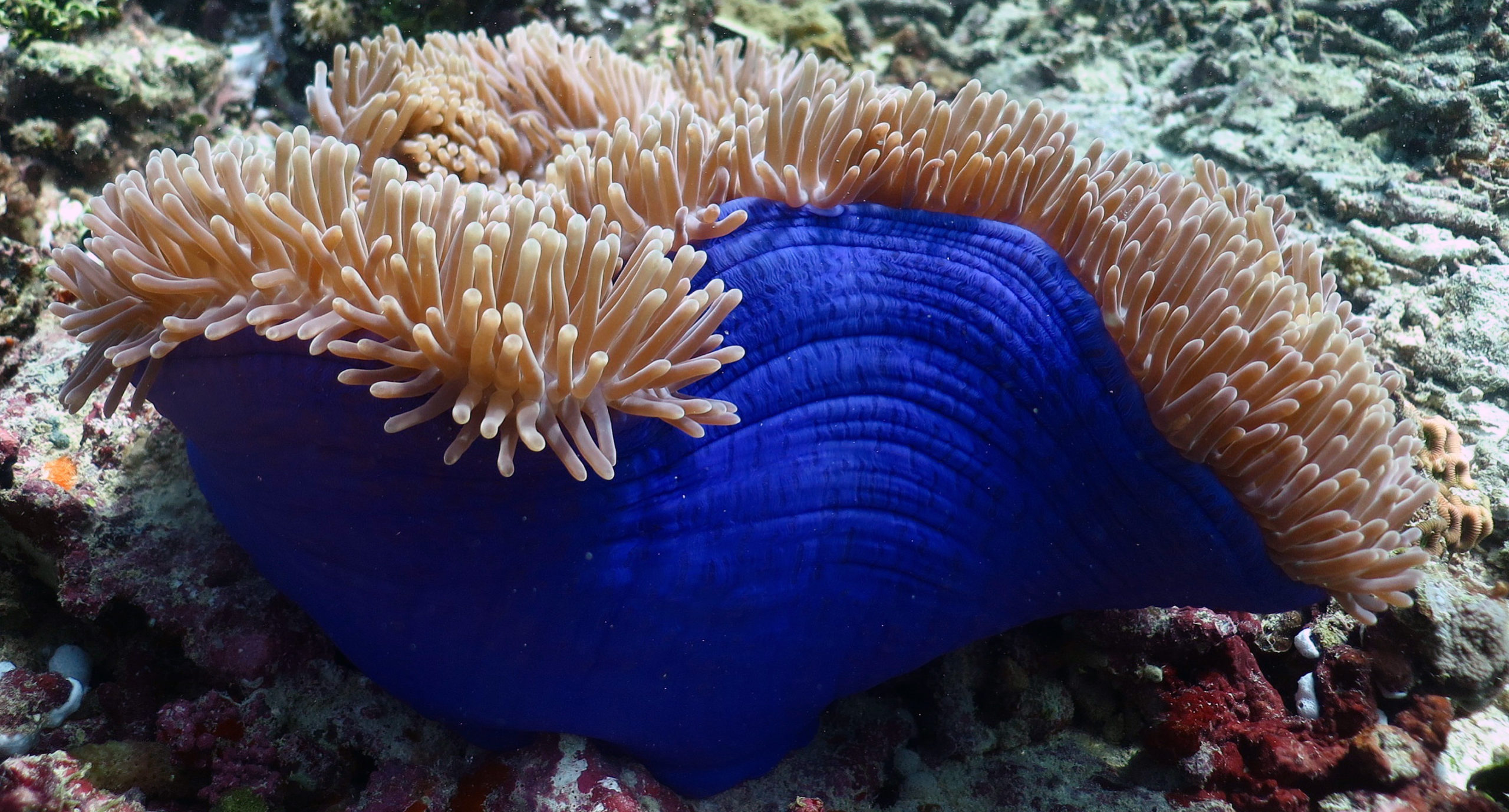
Matheus Mello-athayde
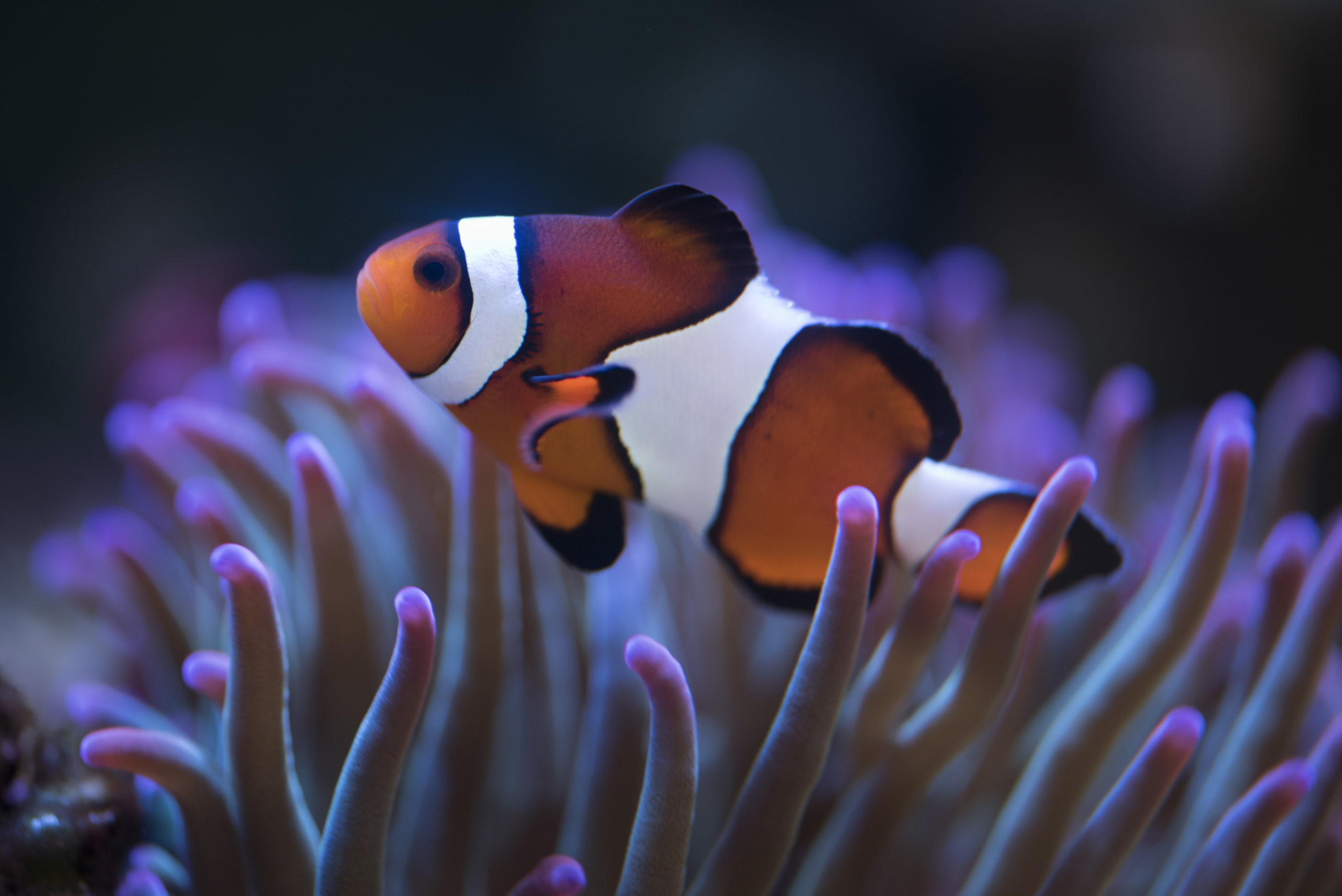
Matheus Mello-athayde
Contact
Matheus A. Mello-Athayde, BSc (Hons), PhD Candidate / Research assistant – CRE lab
ARC Centre of Excellence for Coral Reef Studies Link to student’s page
School of Biological Sciences, The University of Queensland, Gehrmann Laboratories (Bldg 60), Level 7, Research Rd. Brisbane, St. Lucia QLD 4072, Australia.
Ph: (+61) 7 0406 178 842 E: m.athayde@uq.edu.au / matheus.melloathayde@uqconnect.edu.au

